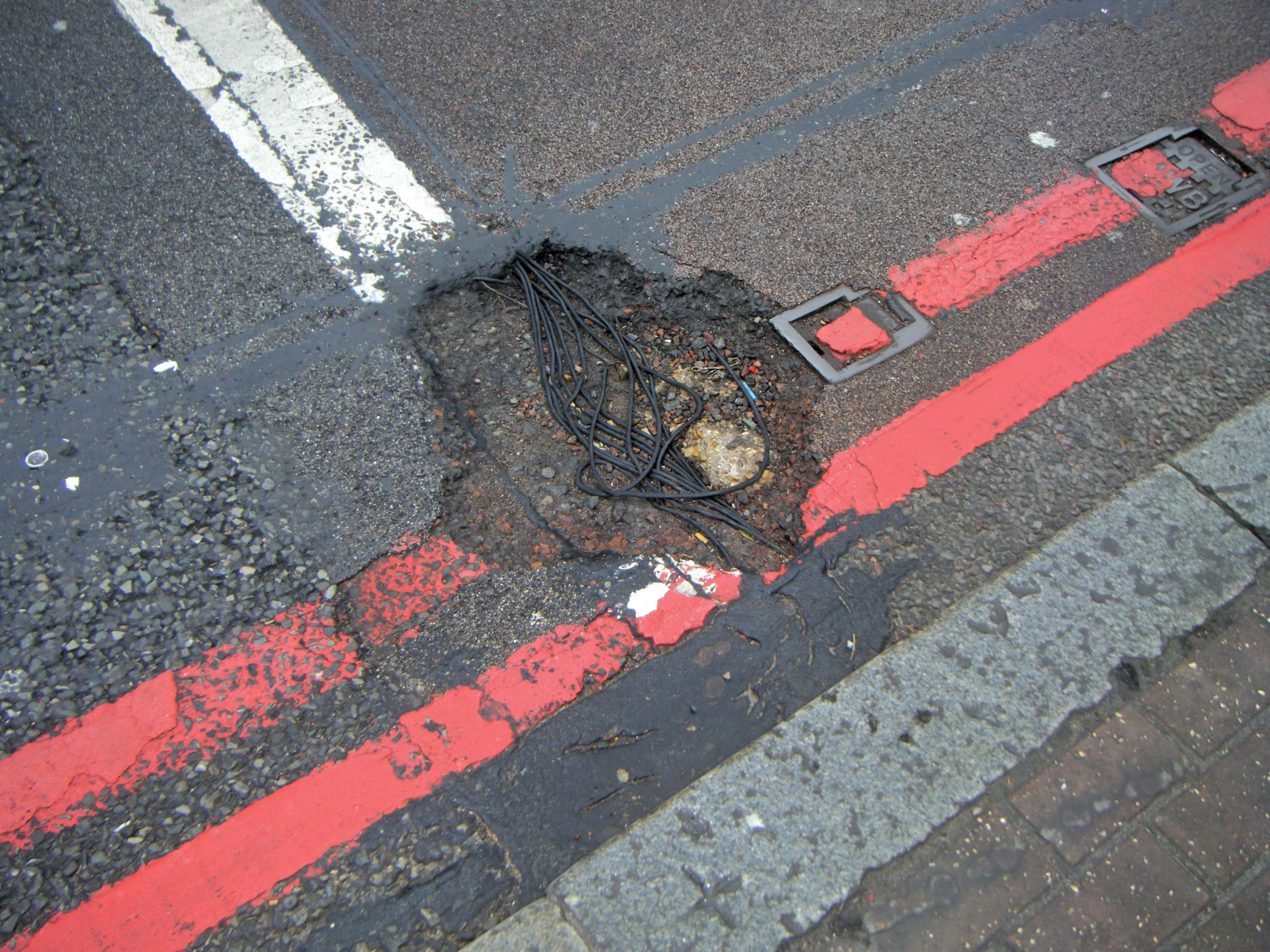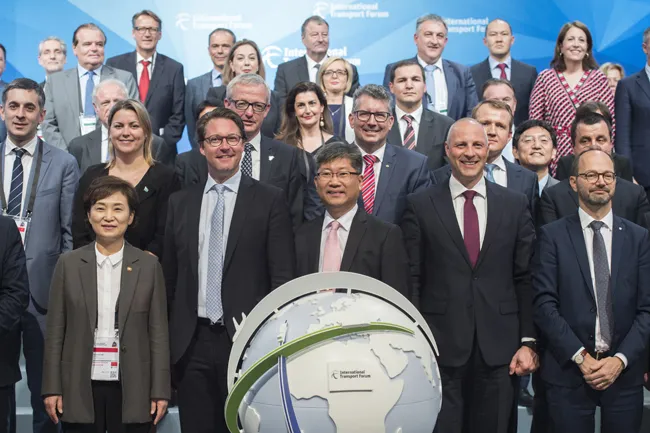Simply banning cars in parts of major cities will not necessarily greatly improve the air quality over time, a new report has found.
The answer for cutting carbon emissions is to get the right balance of private and public transportation along with infrastructure developed to sustain the mix, according to the International Transport Forum (ITF), a think tank within the Organisation of Economic Cooperation and Development (OECD).
The ITF evaluated the potential impact of transport policies on urban carbon
December 4, 2014
Read time: 3 mins
Simply banning cars in parts of major cities will not necessarily greatly improve the air quality over time, a new report has found.
The answer for cutting carbon emissions is to get the right balance of private and public transportation along with infrastructure developed to sustain the mix, according to the1102 International Transport Forum (%$Linker: 2 External <?xml version="1.0" encoding="utf-16"?><dictionary /> 0 0 0 oLinkExternal ITF Visit: www.internationaltransportforum.org page false http://www.internationaltransportforum.org/pub/pdf/14Outlook-Chapter4.pdf false false %>), a think tank within the Organisation of Economic Cooperation and Development (OECD).
The ITF evaluated the potential impact of transport policies on urban carbon emissions and published the findings as part of the organisation’s annual Transport Outlook survey. The chapter Urban Passenger Transport Scenarios for Latin America, China and India is available to download from the %$Linker:2 External <?xml version="1.0" encoding="utf-16"?><dictionary /> 0 0 0 oLinkExternal ITF’s website Visit international transport forum Website false http://www.internationaltransportforum.org/Pub/pdf/14Outlook-Chapter4.pdf false false %>.
The report, which was released by the ITF at the UN’s climate change negotiations in Lima, Peru, highlights the choice for today’s transport policy makers: whether to pursue urbanisation based on public transport or on private transport that focuses on cars and two-wheelers. Today’s policies that promote either private or public urban transport will lead to very different transportation futures by the year 2050.
Overall, if current private transport-oriented policies are maintained, then big cities in China, India and Latin America with more than 500 000 inhabitants will more than double their share of world passenger transport emissions from today’s 9% to 20% by 2050. According to the report, 38% of growth in world surface transport passenger emissions to 2050 will come from big cities in these three regions.
In India, a private transport-oriented policy would lead to only 11% of urban mobility – the movement of people – by the year 2050. However, if the emphasis was more on public transport, the ITF report suggested that public transport could account for nearly four times as much, around 39%, of mobility.
Similarly, in Latin America, current private transport policies would have public transport account for 11% of mobility, but this could rise to 50% under public transport-oriented policies.
China, too, would suffer under current policies that could lead to public transport accounting for only 9% of mobility. However, a public-transport-oriented policy could mean this jumps to 34% of mobility.
These alternative scenarios have profound impacts for the contribution of urban transport to global emissions, according to ITF projections. In India, policies that favour car-use could increase emission growth by 47%. Policies that favour public transport could reduce it by 37% from 2010 levels.
In Latin America, policies that encourage private transport would add 35%, while public transport-driven urbanisation could reduce emissions growth by 31%. Chinese emissions would grow by 19% above 2010 levels if cities were to support individual transport, but fall by 26% assuming a shift to public transport.
But there could also be some negative social implications accompanying public transport-weighted policies. For instance, if a ban on motorised three-wheelers in Indian cities reduced their number by 80% by 2050, then this would lead to only a 4% reduction in CO2 emissions as people switch to two-wheelers. Reduced mobility for others would impose a social cost, the report noted.
Air pollution and health impacts that would result from the different transport activity scenarios were calculated by the %$Linker:2 External <?xml version="1.0" encoding="utf-16"?><dictionary /> 0 0 0 oLinkExternal International Council for Clean Transportation Visit icct Website false http://www.theicct.org/ false false %> (ICCT).
At the ITF’s annual summits, ministers from the OECD’s 54 member countries debates with decision-makers from business, civil society leaders and academics. The International Transport Forum's 2015 Summit focusing on the theme "Transport, Trade and Tourism" will take place in Leipzig, Germany, from 27-29 May, 2015.
The answer for cutting carbon emissions is to get the right balance of private and public transportation along with infrastructure developed to sustain the mix, according to the
The ITF evaluated the potential impact of transport policies on urban carbon emissions and published the findings as part of the organisation’s annual Transport Outlook survey. The chapter Urban Passenger Transport Scenarios for Latin America, China and India is available to download from the %$Linker:
The report, which was released by the ITF at the UN’s climate change negotiations in Lima, Peru, highlights the choice for today’s transport policy makers: whether to pursue urbanisation based on public transport or on private transport that focuses on cars and two-wheelers. Today’s policies that promote either private or public urban transport will lead to very different transportation futures by the year 2050.
Overall, if current private transport-oriented policies are maintained, then big cities in China, India and Latin America with more than 500 000 inhabitants will more than double their share of world passenger transport emissions from today’s 9% to 20% by 2050. According to the report, 38% of growth in world surface transport passenger emissions to 2050 will come from big cities in these three regions.
In India, a private transport-oriented policy would lead to only 11% of urban mobility – the movement of people – by the year 2050. However, if the emphasis was more on public transport, the ITF report suggested that public transport could account for nearly four times as much, around 39%, of mobility.
Similarly, in Latin America, current private transport policies would have public transport account for 11% of mobility, but this could rise to 50% under public transport-oriented policies.
China, too, would suffer under current policies that could lead to public transport accounting for only 9% of mobility. However, a public-transport-oriented policy could mean this jumps to 34% of mobility.
These alternative scenarios have profound impacts for the contribution of urban transport to global emissions, according to ITF projections. In India, policies that favour car-use could increase emission growth by 47%. Policies that favour public transport could reduce it by 37% from 2010 levels.
In Latin America, policies that encourage private transport would add 35%, while public transport-driven urbanisation could reduce emissions growth by 31%. Chinese emissions would grow by 19% above 2010 levels if cities were to support individual transport, but fall by 26% assuming a shift to public transport.
But there could also be some negative social implications accompanying public transport-weighted policies. For instance, if a ban on motorised three-wheelers in Indian cities reduced their number by 80% by 2050, then this would lead to only a 4% reduction in CO2 emissions as people switch to two-wheelers. Reduced mobility for others would impose a social cost, the report noted.
Air pollution and health impacts that would result from the different transport activity scenarios were calculated by the %$Linker:
At the ITF’s annual summits, ministers from the OECD’s 54 member countries debates with decision-makers from business, civil society leaders and academics. The International Transport Forum's 2015 Summit focusing on the theme "Transport, Trade and Tourism" will take place in Leipzig, Germany, from 27-29 May, 2015.







